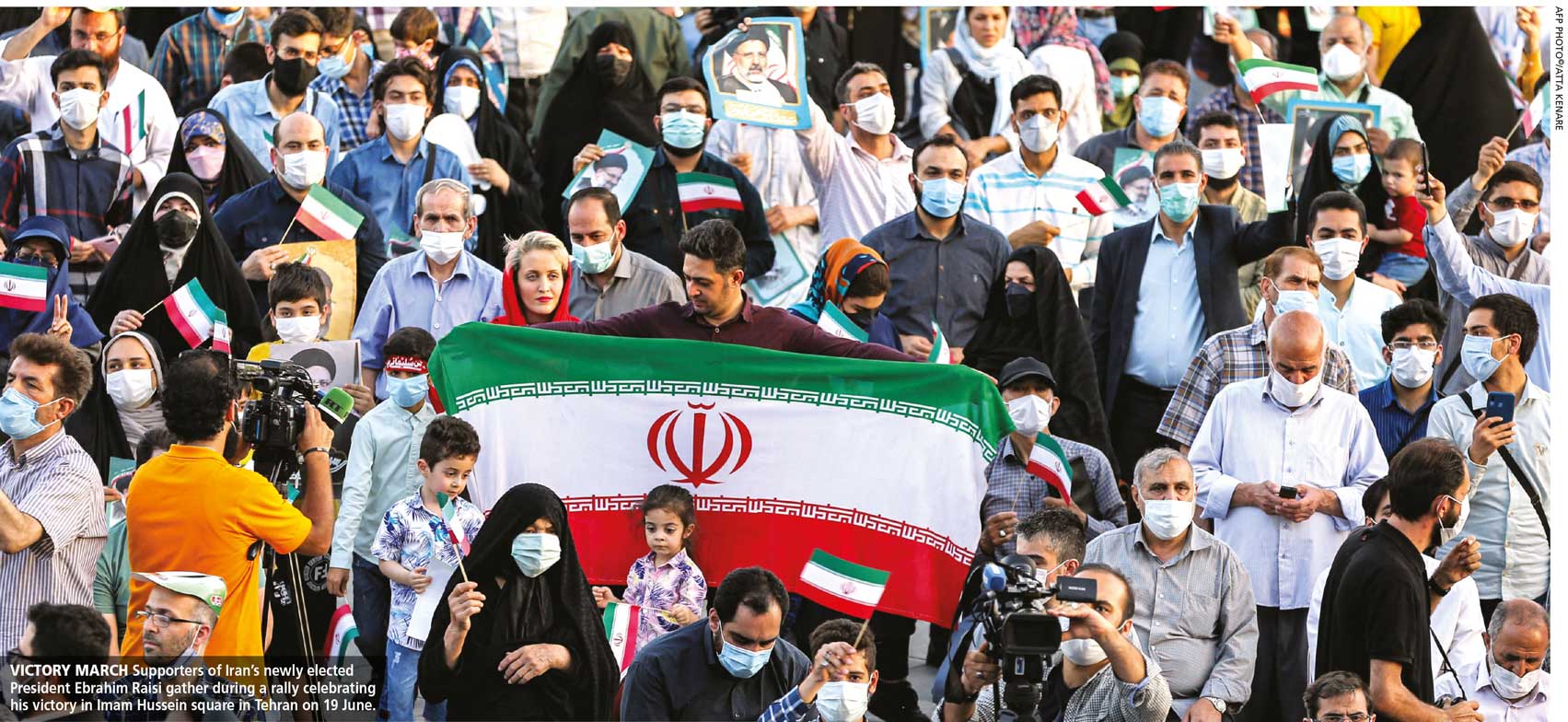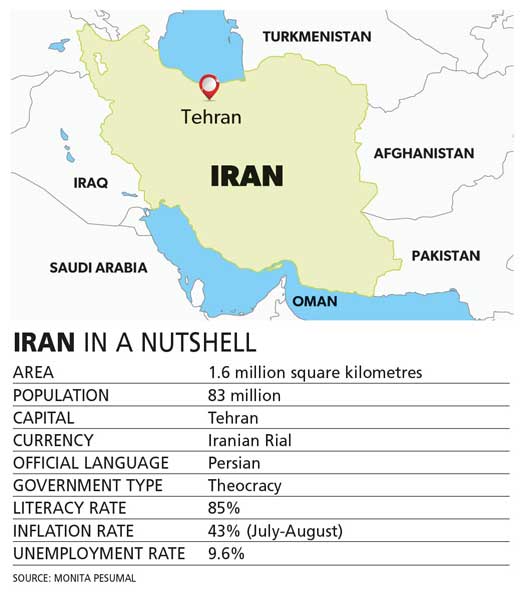IRAN TODAY
THE RESILIENCE OF PERSIA
Monita Pesumal examines the economy of Iran and its role in the prevailing geopolitical landscape

If countries were people, the Islamic Republic of Iran would probably be labelled a nonconformist and rebel. Iran is home to the world’s 23rd largest economy and whether you are an avid reader or not, it is an open secret that its economy is heavily sanctioned by the West.
How then does the Iranian economy manage to stay afloat, let alone be among the elite list of the top 25 performing economies of the world?
In a word, ‘resilience’!
The economy has endured US sanctions for more than 40 years and learnt to survive by manoeuvring itself around the impacts of these obstacles.
 To begin with, the Iranian economy is diverse and doesn’t depend on oil alone.
To begin with, the Iranian economy is diverse and doesn’t depend on oil alone.
It’s true that the nation’s wealth stems from the fact that it holds the world’s third largest deposits of oil and second largest reserve of natural gas. And it’s also true that at the end of last year, Iran accounted for 25 percent of oil reserves in the Middle East and 12 percent on a world scale.
But apart from petroleum and natural gas, the country’s natural resources include coal, chromium, copper, iron ore, lead, manganese, zinc and sulphur. Iran is a founder member of OPEC.
The manufacturing of vehicles, metals and plastics accounts for 20 percent of employment in the republic. Metals, chemicals, precious stones, nuts, spices, exotic fruit, textiles (think glorious Persian rugs), glass decor (mirrors and lamps), and art and artefacts account for almost 50 percent of its exports.
Tehran capitalises on key relationships in the region to leverage support for its export revenue. The republic’s main export partners include China, India, South Korea, Turkey, Thailand, Azerbaijan, the UAE, Pakistan, Russia, Germany, Italy and Spain.
Over the past two decades, China has emerged as Iran’s largest trading partner with the volume of trade between the two countries amounting to over US$ 20 billion annually. According to the World Bank, Iran’s GDP is estimated to expand by 1.7 percent in 2020/21.
Iran’s supreme leader Ayatollah Ali Khamenei was appointed for life in June 1989 after succeeding Ayatollah Ruhollah Khomeini, the founder of the Islamic republic. He appoints the heads of the judiciary, military and media, and confirms the election of the president. Iran went to the polls in June to choose its eighth president when Hassan Rouhani’s term came to an end.
In spite of domestic and international criticism, head of the judiciary and hardline cleric Sayyid Ebrahim Raisolsadati (Raisi) was elected and took office on 5 August. During his campaign, the 60-year-old presented himself as the best person to combat corruption and solve Iran’s economic problems.
In a recent telephone conversation with his Chinese counterpart President Xi Jinping, Raisi expressed Tehran’s readiness to cooperate with Beijing to ensure security and stability in Afghanistan amid the US withdrawal. The Iranian president also described Sino-Iranian relations as a priority for his administration.
The agreement signed in March between Iran and China promotes a strategic partnership as the latter continues to focus on achieving its geopolitical interests in the Middle East, Eurasia and the Indian Ocean.
As part of the agreement, China will invest 400 billion dollars in infrastructure projects in Iran, cementing Tehran’s position as a critical link along the Belt and Road Initiative (BRI a.k.a. the new Silk Road), and paving a new path for bilateral trade and cooperation.
Both nations have been low-key about the agreement’s specific commitments but the main objective appears to be to create a positive environment for Sino-Iranian trade and business.
During the conversation, Raisi urged Beijing to expe-dite the delivery of millions of doses of COVID-19 vaccines that Tehran had ordered to fight the pandemic and thanked Xi for helping Iran manage the crisis.
Although Washington’s withdrawal from the Iran nuclear deal (Joint Comprehensive Plan of Action) in May 2018 and the reimposition of US sanctions on Tehran hit China’s imports of crude oil from Iran, it remains the country’s largest purchaser of black oil. Beijing had earlier expressed support for Tehran’s “reasonable demands” regarding the nuclear deal.
Iran and the other signatories to the agreement – viz. France, the UK, Germany, Russia, China and the EU – began talks in Vienna in June to try and salvage the deal. Meanwhile, Tehran has moved ahead with its nuclear programme, reduced cooperation with the International Atomic Energy Agency (IAEA) and violated nearly all of the deal’s technical provisions that are meant to prevent it from developing nuclear weapons.
The Biden administration wants to reinstate and eventually broaden the pact to create more limits on Iran’s nuclear capabilities and missile development efforts, and constrain the country more.
However, Iran’s supreme leader has declared that Tehran won’t accept Washington’s “stubborn” demands to revive the 2015 nuclear deal and America had failed to guarantee it will never abandon the pact again.
Iran – the problem child.



